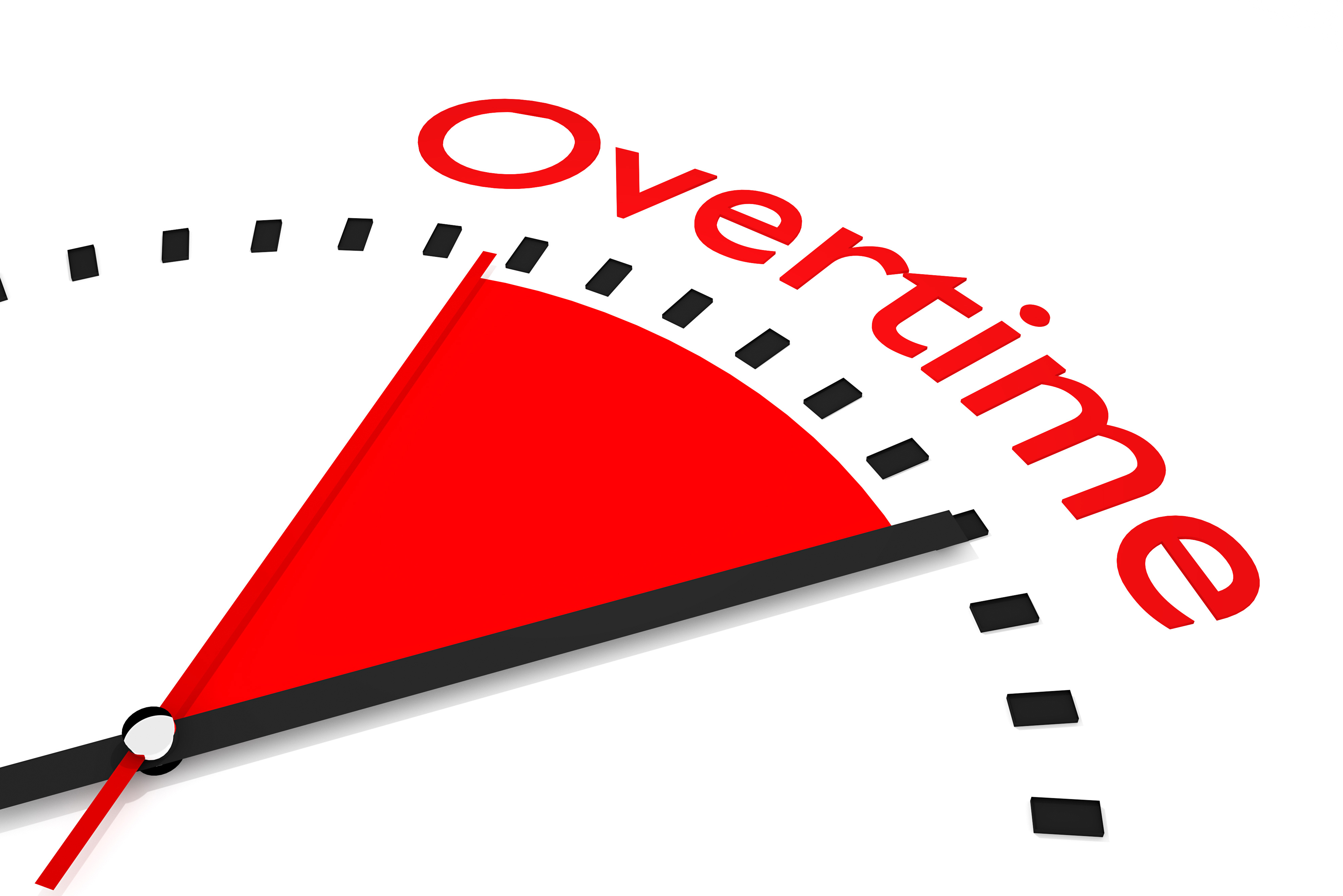Overtime Megan Erome - What You Need To Know
Working extra hours can feel like a lot, and it's good to know what that means for your paycheck. Many folks put in time beyond their usual schedule, and there are rules about how that extra effort gets paid. Understanding these rules helps you make sure you get what you're owed for the hours you put in. It's a pretty big deal for anyone who works.
When you spend more time at your job than what's considered regular, those extra moments often come with a special rate of pay. This isn't just about getting paid for the time; it's about getting paid a little bit more for those additional shifts. Knowing when your work counts as "extra" and how that affects your earnings is, you know, a really good thing to be aware of.
There have been some changes over time, too, regarding how this extra pay works and who gets it. From how your normal workweek is figured out to new government rules that change what you might take home, there's a lot that shapes this part of your working life. It's all about making sure the effort you give beyond your regular duties is properly recognized in your earnings.
Table of Contents
- What Overtime Means for Your Work Life
- How Do Extra Hours Count for Overtime Megan Erome?
- Does the Government Help with Overtime Pay Calculations?
- Figuring Out Overtime Pay Amounts
- What Happens When a Pay Threshold Is Met?
- Big Changes to Overtime Pay and Your Wallet
- Who Is Truly Eligible for Overtime Pay?
- Looking Ahead - Overtime Pay Updates
What Overtime Means for Your Work Life
When we talk about overtime, we're really just talking about the time someone spends working beyond what's considered their usual schedule. This could be, you know, an extra hour here or a few more hours there, past what a typical workday or workweek looks like. It's the effort that goes above and beyond the standard set amount of time. This concept also refers to the extra money someone gets for those added hours. So, it's both the time itself and the special pay that comes with it. The way these "normal hours" are figured out can actually be different depending on where you work or what kind of job you have. There are, for instance, a few ways to determine what counts as a regular work period before the extra hours kick in. It's a pretty straightforward idea, but the details of how it plays out can, you know, vary quite a bit.
Your boss, for example, has a clear responsibility to pay you at a special rate for any hours you work that go beyond your regular schedule. This isn't just a suggestion; it's a requirement for many types of jobs. That special rate for extra hours is usually higher than your regular hourly pay. It’s a way of recognizing the additional effort and time you put into your job. This means if you stay late or come in on a day you don’t usually work, and those hours push you past your standard time, then those moments are supposed to be compensated differently. It's about ensuring that the time you give above your normal duties is properly valued with a higher rate of pay. So, that, is what we mean when we talk about this kind of pay.
How Do Extra Hours Count for Overtime Megan Erome?
The moment you cross a certain work time limit, those extra hours you put in must be paid at a special rate. This is a pretty important point for anyone who works more than their standard schedule. It’s not just about tracking your time; it’s about knowing when your employer has a clear obligation to pay you more for that effort. For example, if you’re someone who is eligible for this kind of extra pay, then any time you work past a specific number of hours in a day or week automatically qualifies for that higher rate. It’s a protection put in place to make sure people are fairly compensated for all their work. So, when those additional hours stack up, they really do count in a distinct way for your paycheck, helping you earn more for your dedication. This applies to situations like those an individual such as Megan Erome might experience.
Figuring out exactly how much extra pay you should get for those additional hours can feel a little tricky, but there are tools to help. You can, you know, use things like the department of labor’s extra pay calculator to get an idea of what you might be owed. These calculators are designed to help you estimate the amount of extra pay you should receive. They take into account your regular pay rate and the number of extra hours you worked, then apply the correct special rate. It’s a helpful way to get a clear picture of your potential earnings for that added time. This makes it easier to understand your pay slip and confirm that everything looks right. So, it's a pretty useful resource for making sense of your earnings.
Does the Government Help with Overtime Pay Calculations?
Yes, the government does offer resources to help people figure out their extra pay. The department of labor, for example, provides tools that can help you estimate how much extra pay you should receive. These tools are there to make it a bit simpler for workers to understand their rights and potential earnings. They are set up to calculate based on standard rules, so you can get a pretty good idea of what to expect. This means you don't have to guess or do complex math on your own. It's a way for the government to support workers in getting what they are due for their time. So, in a way, they do help make those calculations more straightforward for everyone involved.
These government tools consider things like your regular hourly wage and the number of hours you worked beyond your standard schedule. They then apply the appropriate special rate, which is often one and a half times your usual pay, though the exact amount can vary. This kind of assistance is really helpful because it takes some of the guesswork out of understanding your paycheck. It empowers you to check that your employer is paying you correctly for all the hours you put in, especially those extra ones. It's a good idea to use these resources if you ever have questions about your extra pay, just to make sure everything lines up as it should.
Figuring Out Overtime Pay Amounts
When you're trying to work out how much extra pay you're due, it comes down to a few key pieces of information. First, you need to know your regular hourly wage. This is the base amount you earn for each hour of your standard work. Then, you need to count up all the hours you worked that went beyond your normal schedule. These are the hours that will qualify for the special rate. Once you have those two numbers, you can then apply the special pay rate, which is usually a specific multiple of your regular wage. It's a fairly simple calculation once you have the right numbers. This process helps ensure that every moment you spend working past your usual time is accounted for and paid at the correct, higher rate. So, it's about combining your regular pay with your extra hours to get the full picture.
For instance, if your normal hours are determined in a certain way, like a forty-hour workweek, then any time you work over that forty-hour mark typically counts as extra. The same idea applies if your normal hours are figured out on a daily basis. Knowing how your regular hours are set up is a really important first step. This helps you figure out when that special pay rate kicks in. It’s about understanding the basic structure of your work schedule before you even think about the added hours. So, the method used to define your standard work period is pretty central to figuring out your extra pay.
What Happens When a Pay Threshold Is Met?
When that specific work hour limit is met or crossed, those extra hours you've put in become subject to a different pay rule. This means they are no longer paid at your standard hourly rate. Instead, they must be compensated at the special, higher rate meant for extra work. This threshold is like a boundary line; once your working time goes past it, the way your hours are valued changes. It's a legal requirement for employers to recognize this change and adjust your pay accordingly. So, the moment you hit that limit, the financial benefit of your extra effort becomes clear. It's a pretty clear signal that your added time is worth more per hour.
This system is in place to provide a fair way to pay people for their added contributions at work. It encourages employers to be mindful of the hours their team members are putting in. For the worker, it means that putting in more time beyond the usual schedule comes with a greater financial return for each of those added moments. It's a way to ensure that the dedication and effort of working longer hours are properly acknowledged through increased earnings. So, when that threshold is crossed, it's a good thing for your wallet, really, as it means more money for your time.
Big Changes to Overtime Pay and Your Wallet
There have been some rather big shifts in how extra pay and even tip income are handled, thanks to recent government actions. For example, a massive bill that a former president signed into law on a past July 4 included some new tax breaks for money earned from tips and for extra pay. These changes became effective starting in the same year the bill was signed. This kind of legislation can have a real impact on how much money people take home from their jobs, especially those who rely on tips or frequently work more than their standard hours. It's a pretty significant adjustment to the financial landscape for many workers. So, these changes are worth knowing about.
This big bill, for instance, really builds on a certain direction by making sure there's no tax on tips and no tax on extra pay. It also includes other financial policies like allowing businesses to write off 100% of certain costs, reducing some government rules, and strengthening border security. The overall goal of this kind of bill is often to create a sense of stability in policies, which can affect how businesses operate and how individuals earn their money. It's a broad piece of legislation that touches on several parts of the economy. So, it's not just about extra pay; it’s part of a larger financial picture.
The former president's new big bill creates some temporary deductions for tips that are taxable by the federal government and for qualified extra pay. However, there are, you know, some things to be aware of, some small print or conditions that come with these benefits. This means that while the idea is to provide a tax break, the specifics of who qualifies and how it works might have certain limits or requirements. It's not always a simple, across-the-board benefit without any conditions. So, while the intention is to help people financially, it's important to look into the details to understand how these deductions might apply to your specific situation. There are always a few things to consider.
Who Is Truly Eligible for Overtime Pay?
The question of who actually gets extra pay for working beyond normal hours is a really important one. It's not every single person who works extra time, you know, that automatically qualifies. There are specific rules and conditions that determine if someone is eligible. These conditions often relate to the type of job they have, how they are paid, and sometimes even their level of responsibility. For example, certain kinds of professional or managerial roles might be exempt from extra pay rules, even if those individuals work very long hours. It's about understanding the categories of workers that the law covers for this kind of compensation. So, knowing your job classification is a pretty big part of figuring out your eligibility.
The massive bill that was signed into law, which includes tax breaks for extra pay, brings up an interesting question: how many workers will actually benefit from these changes? While the law might be in place, the real-world impact depends on how many people meet the criteria for these new tax breaks. It's not always straightforward to predict how many individuals will see a direct financial advantage. This depends on various factors, like their income level, their job type, and how much extra time they work. So, while the law aims to help, the number of people who truly feel the positive effects might be a bit different from what one might initially expect.
Looking Ahead - Overtime Pay Updates
Looking forward, there are often updates and changes to how extra pay is handled, especially concerning any tax exemptions. For example, you might want to look into the updates for the year 2025 regarding the exemption for tax on extra pay. These updates can include changes at the federal level, which means they affect people across the entire country. Staying informed about these kinds of changes is pretty smart because they can influence your take-home pay. It’s all about understanding what’s new in the rules that govern how you get paid for your work. So, keeping an eye on these future developments is a good idea for your finances.
These updates usually cover things like who is eligible for certain benefits and tips on how to make sure you're following the rules. This means they might clarify who can get the tax break on extra pay and what steps employers or individuals need to take to comply with the new rules. It's about making sure everyone understands their rights and responsibilities concerning extra work compensation. So, knowing about these future changes can help both workers and employers prepare and make sure they are doing things correctly. It's a way to stay on top of the financial aspects of working more than your usual hours.
Article Recommendations
- Things To Do In Dallas For Couples
- Carol Assistant
- The Millstream Inn
- Talbot House Ministries Dr Elizabeth
- Rosie Etienne



Detail Author:
- Name : Dr. Frederik Parker
- Username : kellen.spinka
- Email : shaniya47@stehr.org
- Birthdate : 1988-08-29
- Address : 78501 Reichert Circle Apt. 690 New Leilani, GA 40188
- Phone : 813.910.2737
- Company : Dibbert-Bashirian
- Job : Agricultural Technician
- Bio : Magnam ut voluptas magnam odio odio velit. Reprehenderit sed incidunt vero esse saepe. Voluptatem quod corporis alias est incidunt ipsa. Ut dicta quos omnis est.
Socials
instagram:
- url : https://instagram.com/elaina_id
- username : elaina_id
- bio : Temporibus voluptatum assumenda beatae. Id in mollitia velit.
- followers : 6444
- following : 2506
tiktok:
- url : https://tiktok.com/@elaina_xx
- username : elaina_xx
- bio : Non eum repellendus earum. Eligendi expedita illo est.
- followers : 4158
- following : 2698
twitter:
- url : https://twitter.com/elaina.davis
- username : elaina.davis
- bio : Enim voluptatem illo et voluptas aut. Sunt ut et voluptatem. Voluptatibus explicabo sint sequi voluptatem est et. Placeat eius earum mollitia repudiandae.
- followers : 2810
- following : 2010
linkedin:
- url : https://linkedin.com/in/davis1979
- username : davis1979
- bio : Qui et rerum et similique minima vitae.
- followers : 5750
- following : 2910
facebook:
- url : https://facebook.com/elaina_dev
- username : elaina_dev
- bio : Architecto quisquam voluptatum labore voluptates ea autem.
- followers : 387
- following : 2517